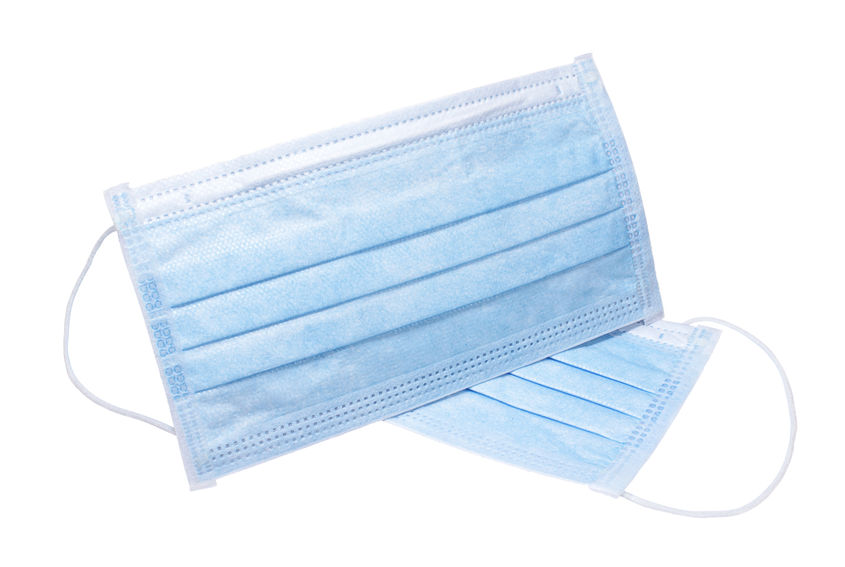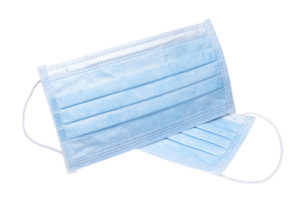
 We at Hermann Aesthetics & Wellness, like other medical professionals, believe in the use of facial masks when out in public. This may help protect you and others from receiving or transmitting the coronavirus. In recent studies, up to 25% of people that have the coronavirus lack the symptoms and others could be contagious prior to exhibiting symptoms. Therefore, individuals could be spreading the virus unintentionally. We know that the virus can be spread through respiratory droplets that can be spread by talking, coughing, sneezing with or without having symptoms. Therefore, the CDC has started recommending people wear cloth face masks in public settings such as doctor offices, grocery stores, pharmacies, etc. Facemasks can help slow the spread of the coronavirus and help people who may have the virus and do not have symptoms from transmitting it to others. However, these facemasks are not a substitute for social distancing, frequent hand washing and other everyday preventive actions. A cloth facemask is not intended to protect the wearer, but it may prevent the spread of virus from the wearer to others that may not realize they have the virus. Therefore, if we all wear a cloth facemask, we can potentially decrease the spread of the coronavirus.
We at Hermann Aesthetics & Wellness, like other medical professionals, believe in the use of facial masks when out in public. This may help protect you and others from receiving or transmitting the coronavirus. In recent studies, up to 25% of people that have the coronavirus lack the symptoms and others could be contagious prior to exhibiting symptoms. Therefore, individuals could be spreading the virus unintentionally. We know that the virus can be spread through respiratory droplets that can be spread by talking, coughing, sneezing with or without having symptoms. Therefore, the CDC has started recommending people wear cloth face masks in public settings such as doctor offices, grocery stores, pharmacies, etc. Facemasks can help slow the spread of the coronavirus and help people who may have the virus and do not have symptoms from transmitting it to others. However, these facemasks are not a substitute for social distancing, frequent hand washing and other everyday preventive actions. A cloth facemask is not intended to protect the wearer, but it may prevent the spread of virus from the wearer to others that may not realize they have the virus. Therefore, if we all wear a cloth facemask, we can potentially decrease the spread of the coronavirus.
Cloth facemasks can be made easily from common materials that can be found in your house. In recent tests, HEPA furnace filters, vacuum cleaner bags, layers of 600-count pillowcases/sheets, fabric like flannel pajamas and 100% woven cotton fabric were considered the best materials to make cloth facemasks. There are many ways to make these facemasks. Some cites I recommend viewing on making these cloth facemasks are:
https://www.cdc.gov/covid/?CDC_AAref_Val=https://www.cdc.gov/coronavirus/2019-ncov/prevent-getting-sick/diy-cloth-face-coverings.html
https://www.hopkinsmedicine.org/johns-hopkins-childrens-center/covid-19#:~:text=Masking%20is%20strongly%20recommended%20but,upper%20respiratory%20symptoms%20or%20fever.
The cloth masks should include multiple layers of fabric and allow for breathing without restriction. The more layers, the better the protection. The next important thing about cloth facemasks is making sure you are wearing them properly to give the best protection. They should fit snugly but comfortably against the side of the face and be secured with ties or ear loops. Next, how do we remove them without contaminating ourselves? Remove the cloth facemask by the ear bands or ties and either wash or discard it without touching the front of it and be careful not to touch your eyes, nose, and/or mouth when removing the cloth facemask. Remember, if you touch the front of the mask, your hands now have possibly come in contact with the virus so wash your hands immediately for 20 seconds. We recommend you wash your hands immediately after removing your cloth mask regardless. Below is a video from the World Health Organization that teaches you how to remove a face mask properly.
If you are going to reuse your cloth mask, you should immediately after use place it in the wash to be laundered in hot water and machine dried without damage or boil in water for 5 minutes.
Hermann Aesthetics & Wellness and the CDC recommends wearing cloth face masks in public settings where other social distancing measures are difficult to maintain (e.g., grocery stores and pharmacies) especially in areas of significant community-based transmission. By wearing these cloth facemasks, in addition to other guidelines, will help slow the spread of the coronavirus and help people who may have the virus and do not know it from transmitting it to others.
Most importantly, the facemask should be used in addition to social distancing and frequent 20 second hand washing. It is critical that all continue to follow the CDC recommendation and the President’s Coronavirus Guidelines stay-at-home initiative and maintaining 6 feet social distancing to slow the spread of the coronavirus.
Hermann Aesthetics & Wellness is supporting our community by offering telemedicine visits for medical and cosmetic issues. We challenge you to support our community by doing your part by staying at home, washing hands for 20 seconds frequently, stay 6 feet a part and wear a cloth mask when going out in public spaces when necessary.

